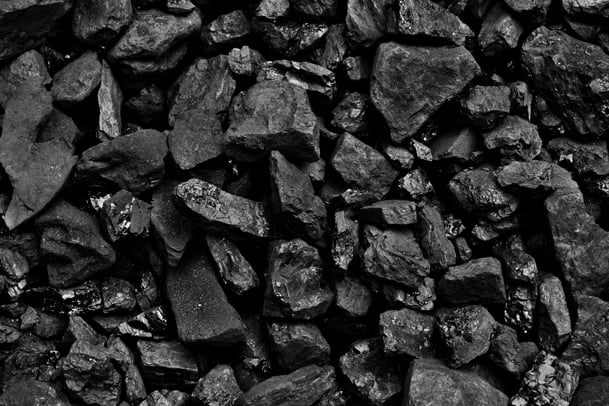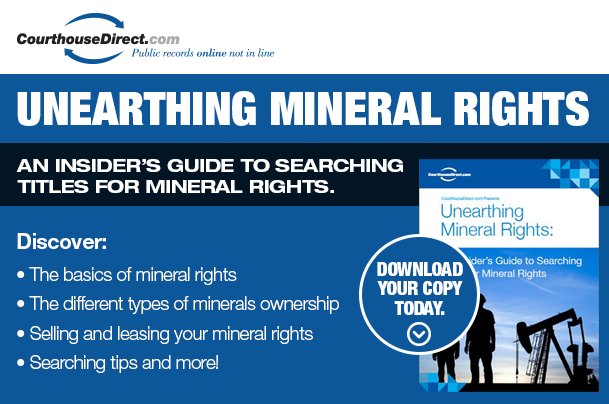 When individuals inherit property, along with that property comes rights to anything in the ground. In many parts of the globe, whatever is in the soil belongs to the government, but in the United States, oil, gas and precious materials usually belong to the land owner. If your loved one dies and leaves you property, mineral rights must be transferred to you when the will is probated.
When individuals inherit property, along with that property comes rights to anything in the ground. In many parts of the globe, whatever is in the soil belongs to the government, but in the United States, oil, gas and precious materials usually belong to the land owner. If your loved one dies and leaves you property, mineral rights must be transferred to you when the will is probated.
The Probate Process
When your loved one died, if they left a will, they likely appointed someone to manage their assets during the process of establishing the will’s validity. During the transfer process, the executor can transfer mineral rights to you, which means you are allowed to either mine and sell resources yourself or enter into a mineral rights lease so others can remove them.
To transfer rights, an attorney or title insurance company must complete a title search to make sure your deceased loved one had the right to convey them. When mineral rights are separate from the real estate’s surface, preparers will create a mineral deed with a legal description of all rights you are to receive.
If there is a current lease on the mineral rights, that means at some point in the past the land’s owner entered into an agreement with an oil and gas company that allowed them to remove resources in exchange for some type of compensation. The executor can transfer interest in the lease into your name so you can collect the compensation it affords.
Understanding Your Inheritance
Mineral rights ownership is becoming increasingly complex. In many situations, an owner from a previous generations splits mineral rights ownership among his heirs, with each owning a percentage. They split their portion with their children, or transfer it to buyers outside the family, further fragmenting mineral rights. You may share mineral rights with people you don’t even know.
If you own the surface rights to a property, you don’t necessarily own the mineral rights. Title research will reveal who owns the mineral rights and what percentage belongs to you. Sometimes oil companies contact heirs when they find out the mineral rights have transferred to them and ask them to sign a lease. Always seek legal advice before you sign anything related to your inheritance.
How to Prove Your Rights
Mineral rights usually aren’t covered on a property deed. Even if they are, there could be previous mineral rights transfers that override what’s on the property deed. The only way to confirm who owns the mineral rights is to trace title transfers back to the original owner, to make sure there are no encumbrances or previous claims.
Sometimes a document says it is a mineral deed, but it only conveys certain rights. Preexisting leases may only pertain to some of the mineral rights on your land. To verify your ownership of, and rights to, minerals beneath your land, it’s necessary to answer the following questions:
- Did the deceased own the land in fee simple? Fee simple is a legal term that means permanent, absolute tenure.
- If they did not, did they hold both surface and mineral rights to the property?
- Did the title specify the deceased as sole property owner or did they inherit it directly?
- Are there any liens or existing leases that affect mineral rights?
Researchers find documentation at the county courthouse. If you are interested in leasing rights to investors, they will require a title abstractor confirm your ownership by pulling all verifying documentation.
Titles are not filled out according to street address, but by metes and bounds, land border descriptions specified on surveys. Abstractors find property records by looking up grantor and grantee names to see if mineral records are contained in a fee simple estate or if they were divided by a previous owner.
In some cases they find information is missing, referred to as a cloud on the title. When deeds are misfiled, legal descriptions are in error, or its unclear how an owner received the title, abstractors will try and trace what happened so the trail becomes clear. When an oil and gas company is interested in buying or leasing your rights, that company will typically pay for the necessary research.
How to Sell Your Rights
Property owners sometimes think of selling their mineral rights as a way to receive payment for something they weren’t going to use anyway. It’s important to understand the implications of selling your rights and know what they’re worth, so you receive an appropriate value.
Often when you inherit rights, many years pass before an oil and gas company becomes interested in buying or leasing them. The more documentation you can make available to interested parties, the easier it is for them to research it and make you an offer. There are multiple online companies that buy mineral rights, and many sellers benefit from getting more than one offer.
How Landmen Can Help
The process of untangling ownership is overwhelming to most people. Energy companies are always looking for owners willing to sell or lease rights to their property. As ownership has become increasingly fragmented, access becomes more difficult to secure. The research process becomes more complex with each transaction, and property owners often trust landmen to help.
A landman acts as a liaison between oil and gas companies and property owners. He or she has a background in the research necessary to form a partnership. The landman confirms land ownership, researches mineral rights and negotiates the sale or lease. A landman is expected to do the following:
- Stay up-to-date on laws, regulations and policies related to mineral rights and provide that knowledge to both their employer and client.
- Protect those they deal with against fraud and misrepresentation.
- Protect the public from actions that could bring them harm or damage the reputation of the petroleum industry.
- Only offer expertise in areas for which they are qualified.
- Always provide accurate information to both client and employer.
A landman is usually an independent contractor whose services the oil and gas company pays for. They help land owners receive compensation for their mineral rights and ensure transfers are conducted legally and ethically.






















